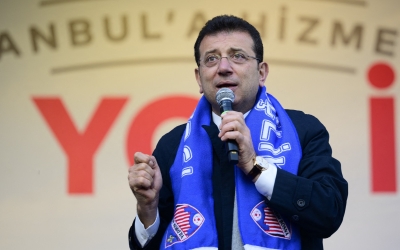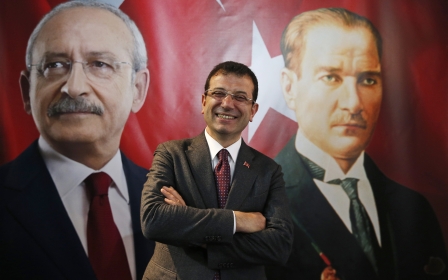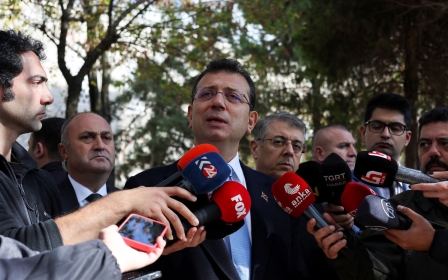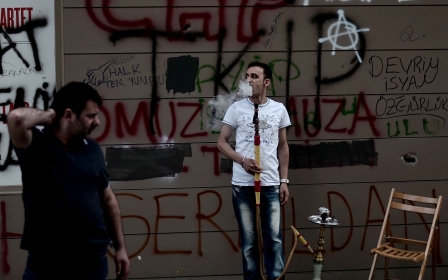Turkey elections 2024: Ruling AKP defeated in mayoral polls in stunning setback
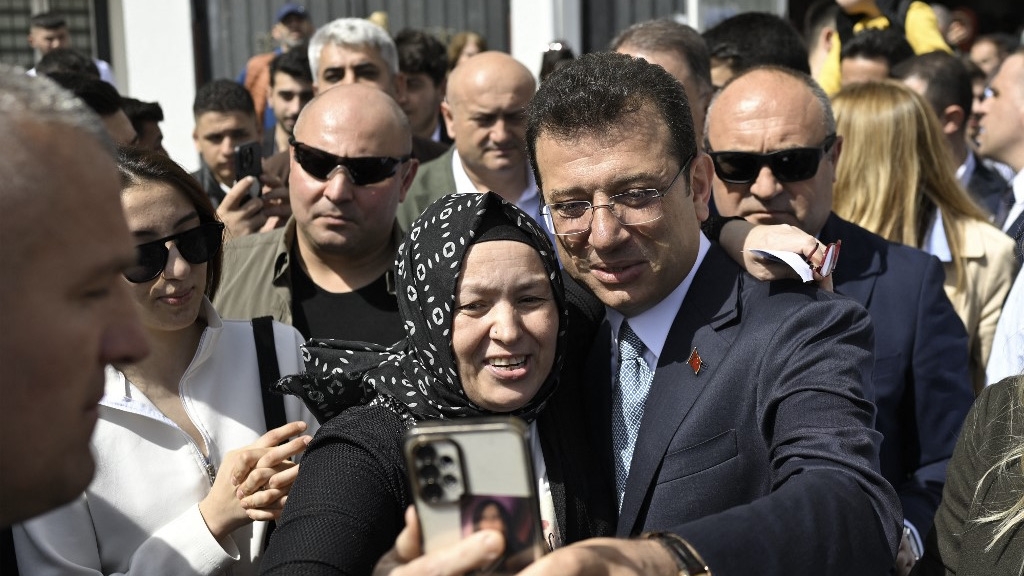
Turkey’s ruling party faced a major defeat in nationwide municipal elections on Sunday, losing the mayoral races in the five largest cities, including Istanbul, Ankara and Izmir, and recording a substantial drop in its votes.
The ruling Justice and Development Party (AKP) received its lowest percentage of votes since its first victory in general elections in 2002, dropping below 36 percent in the ballot.
Meanwhile, the main opposition Republican People’s Party (CHP) polled over 37 percent, going nearly two percent ahead of its rival, according to the semi-official Anadolu Agency data, with more than 91 percent of the votes counted. CHP, the country's founding political party, won an election for the first time since 1977.
In Istanbul, the incumbent mayor, Ekrem Imamoglu, a member of the main opposition party CHP, easily won the race, denying his rival, Turkish President Recep Tayyip Erdogan-backed Murat Kurum, a chance to capture the city.
With 92 percent of the votes counted, Imamoglu was ahead of Kurum by nearly 10 points.
New MEE newsletter: Jerusalem Dispatch
Sign up to get the latest insights and analysis on Israel-Palestine, alongside Turkey Unpacked and other MEE newsletters
Imamoglu’s re-election in Istanbul is likely to propel him to the Turkish opposition’s presidential nomination in 2028. Erdogan famously once said that whoever takes Istanbul could also win the country.
'Goodness in everything'
In a midnight speech, Erdogan conceded defeat and said that his government would obey the Turkish people's will.
"We have four more years to recover the earthquake-hit areas and repair the economy," Erdogan said in Ankara in a televised speech. "Turkish democracy once again proved itself and we had some setbacks we didn't hope for. We will listen to the people's will and self-critique ourselves on our mistakes."
'We will listen to the people's will and self-critique ourselves on our mistakes'
President Recep Tayyip Erdogan
Erdogan also said that his government would decisively follow its economic programme to drop the inflation rate in the second half of the year and avoid populist steps as the country goes back to normal until the 2028 presidential elections.
"There is a goodness in everything," Erdogan added, referring to an Arabic idiom that has Islamic connotations, which suggests something that appears bad might be a blessing from God.
Erdogan also signalled a large military operation against Kurdish militants in the south of the country, and possibly in northern Iraq in the coming months in the same speech, charting a route for the country.
Soaring inflation
The pro-Kurdish citizens of Istanbul appear to have switched their votes to Imamoglu, strategically dumping their own candidate from the pro-Kurdish DEM Party, which barely polled two percent according to the initial results.
"Based on the data we have obtained, I can say that our citizens' faith in us has been rewarded," Imamoglu told reporters at the CHP's Istanbul headquarters.
"I would like to thank all of us, our citizens, from the bottom of my heart for fulfilling this sacred duty."
After casting his vote with his family, Imamoglu emerged to applause and chants of "Everything will be fine", his 2019 election slogan.
Elsewhere, the ruling AKP underperformed, losing all the cities it held in western Turkey near the Aegean Sea and losing by a significant margin to the political Islamist New Welfare Party (YRP) in Anatolian highlands such as Yozgat or Sanliurfa in the southeast.
Ruling party insiders told Middle East Eye that the party was struggling to win the conservative-dominated cities due to the voters who emigrated to YRP over soaring inflation and shrinking salaries.
“The pensioners and the ones who have been hurt by inflation switched to the YRP to punish the government over their poor salaries,” one AKP insider told MEE, asking to remain anonymous so that they could speak freely.
“But on the other hand, the party didn’t really run a good campaign to convince the voters. Erdogan was mostly in the back seat.”
Lack of unity
AKP insiders point out the rise of the YRP, which took more than five percent of the votes, doubling its supporters from a year earlier in the May presidential elections.
YRP ran a campaign based on Turkey’s continuing trade ties with Israel, accusing the government of hypocrisy and asking for substantial increases in minimum wage and pensions.
A change of leadership at CHP, with the election of Ozgur Ozel, also seems to have re-energised the party as Kemal Kilicdaroglu’s term ended after losing a series of elections since 2010.
Approximately 61 million individuals were eligible to vote in the mayoral elections throughout Turkey's 81 provinces and to choose provincial council members along with various local representatives.
In the run-up to the elections, the opposition had shown a marked lack of unity, standing in stark contrast to the cohesion seen in the local elections five years earlier.
This time around, the CHP failed to unify its base around a sole contender.
Middle East Eye delivers independent and unrivalled coverage and analysis of the Middle East, North Africa and beyond. To learn more about republishing this content and the associated fees, please fill out this form. More about MEE can be found here.


